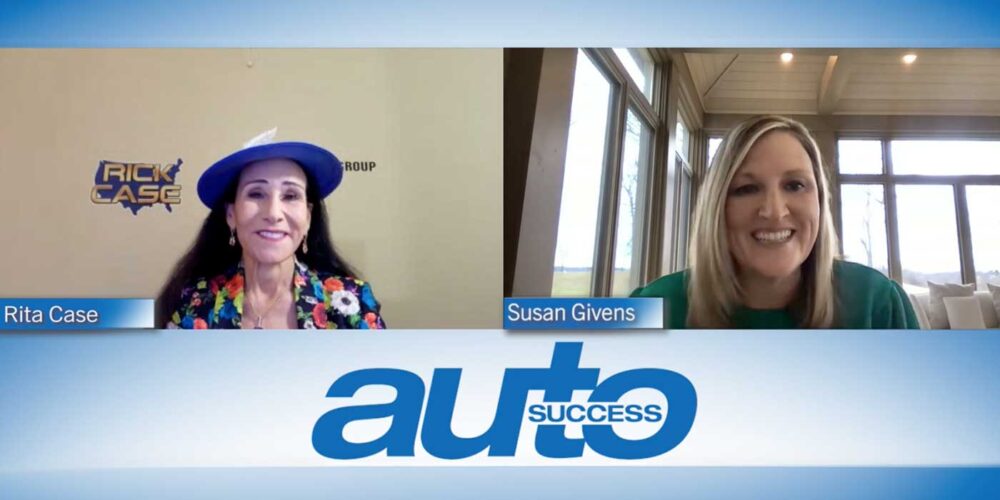By definition, a coach is someone who organizes and trains a team with the goal of improving performance. Part of every manager’s job description includes coaching, and the best managers are also the best coaches.
At auto dealerships, coaching the sales team is critical because they are the front line for customer interactions. The tool used most for these first interactions is the phone. Therefore, coaching phone skills is every bit as important as coaching the rest of the sales process.
When your sales team has strong phone skills, sales metrics improve and customer satisfaction increases. Yet for most salespeople, these skills do not come naturally. In fact, recent inventory challenges caused many salespeople to become somewhat complacent with customers calling to ask about available units. Yet, complacency does not leave a favorable first impression on active vehicle shoppers and potential prospects. And since supply is now returning, salespeople must be retrained on their phone skills, especially in follow-up.
If your sales team hasn’t had any call coaching sessions lately, it’s time to dust off the old playbook — or perhaps create a new playbook. Here are some pointers.
Define the Goal
What is the goal for every incoming call? While you might believe the goal is to set an appointment, sell a vehicle or collect customer information, these goals are somewhat broad. They cannot realistically be achieved with every interaction.
Regardless of the reason for a phone call, the goal of every interaction should be “To delight the customer.” An employee who knows this is the goal and understands this is what they will be judged on is much more likely to focus on the customer’s needs rather than on something they want to achieve.
Additionally, the goal of “delighting the customer” establishes a different mindset for the salesperson than simply answering a customer’s question.
When team members successfully delight the customer with every phone interaction, this will inevitably translate to more conversations, data collection, appointments and, ultimately, more sales.
Document Best Practices
Phone skills do not come naturally to everyone, so develop a process with specific best practices. Then, document the process on paper and post it at every salesperson’s desk where they can see it.
Sample best practices might include:
1: Every time you answer the phone, state your name, the dealership’s name and what department you are in. Ask the customer, “What information can I get for you today?”
2: Listen to and address the customer’s questions.
3: If the inventory the customer is looking for is unavailable, search for a similar vehicle.
4: If the customer can’t afford a vehicle due to rising interest rates, ask the customer if they are willing to wait six months to a year, and you might be able to help them within that timeframe.
5: Collect the customer’s contact information and enter it into the CRM/DMS.
Review best practices at every meeting and ask employees for input on whether the phone process needs to be altered, depending on market conditions and customer feedback.
Use Metrics as Benchmarks
Successful call management requires paying attention to metrics. During team meetings, use key metrics as benchmarks in order to gauge the team’s performance, and set objectives related to improving metrics.
Try not to single out individuals who might not be performing as well as others. Instead, focus on how the team as a whole can improve metrics and provide small incentives for everyone, if necessary.
Promote each team member’s strengths and let every individual know their participation is critical.
Listen to Calls
Take the time every month to meet with each employee and listen to that employee’s calls. This is especially important for employees who don’t perform well on the phone. Help them to identify speech patterns and communication habits that need to be corrected.
Try to avoid giving instructions, such as “Don’t do this.” “Don’t say it that way.” Instead, pose questions to encourage employee participation, such as “How could you have helped this customer find the information they were looking for?” “Can you think of a better way to get that point across next time?”
Know Your Employees
While scripts are helpful tools for guidance, it is generally recommended to let employees be authentic. This means that not everybody will follow scripted sentences and phrases exactly, but that’s OK! A good coach gets to know every individual on their team and encourages them to play up to their strengths.
For example, if English is not a salesperson’s first language, it might be better to let them use casual words and phrases that are more familiar to them, rather than force them to use words and phrases that are more formal.
Employee scorecards are also a great tool for both coaches and employees, and are used to track individual improvements. However, don’t use scorecards to point out what an employee is doing wrong; instead, maintain a positive tone and use the scorecards as an opportunity to grow.
Keep It Going
Call coaching should be included in every sales meeting. When you continue to emphasize the importance of front-line phone skills and praise improvements, employees will focus more time and effort toward improving their own phone skills.
For many car shoppers, the phone is their first interaction with your dealership. The quality of that interaction is often the deciding factor for whether a person chooses your dealership or moves on to call the next one. A commitment to call coaching translates into better phone skills, conversations and first impressions — which ultimately translate into more sales.














